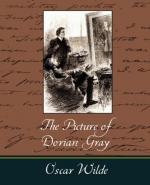|
This section contains 454 words (approx. 2 pages at 300 words per page) |

|
Guilt from Hedonism in "The Picture of Dorian Gray"
Summary: Dorian Gray in "The Picture Of Dorian Gray" by Oscar Wilde pursues a guilt-free life of hedonism, but his attempt to detach his thinking from his soul never quite works. Dorian isn't able to ever escape his sinful nature.
The lures of beauty and pleasure are hard for any man to resist, but for Dorian Gray, it was what he lived for. When Dorian realized that his portrait would acquire his ugliness instead of him, he dedicated his life to hedonism. He committed sins without much guilt and stayed young forever. However, he could never fully detach himself from his soul. This shows the essence of the novel, a person cannot live a conscience free life.
Dorian Gray was an innocent and naïve beauty. He was fascinated by hedonistic philosophies and quickly succumbed to their attraction. He attempted to separate his body and soul in pursuit of a guilt free lifestyle, but he was never able to savor the pleasures in which he partook. Dorian's conscience, the very thing he tried to hide and ignore, would not remain hidden. Basil acted as his conscience so Dorian...
|
This section contains 454 words (approx. 2 pages at 300 words per page) |

|


